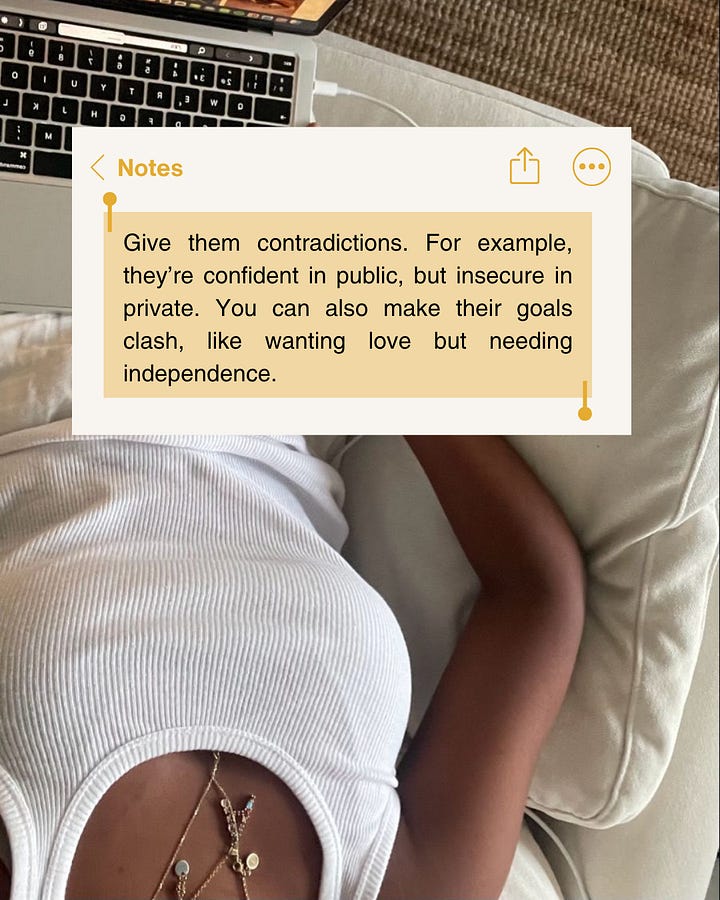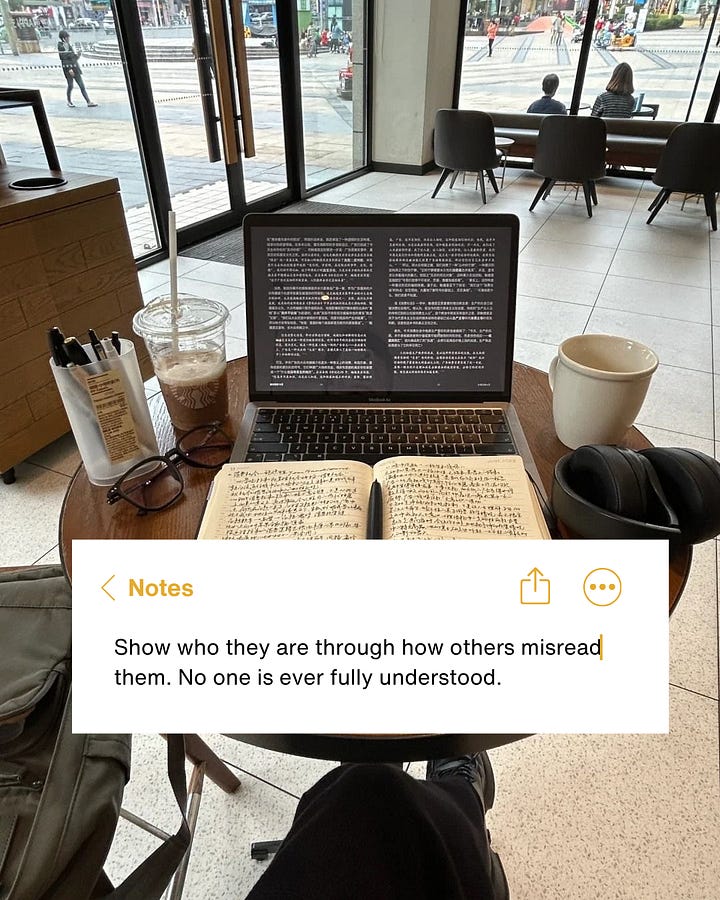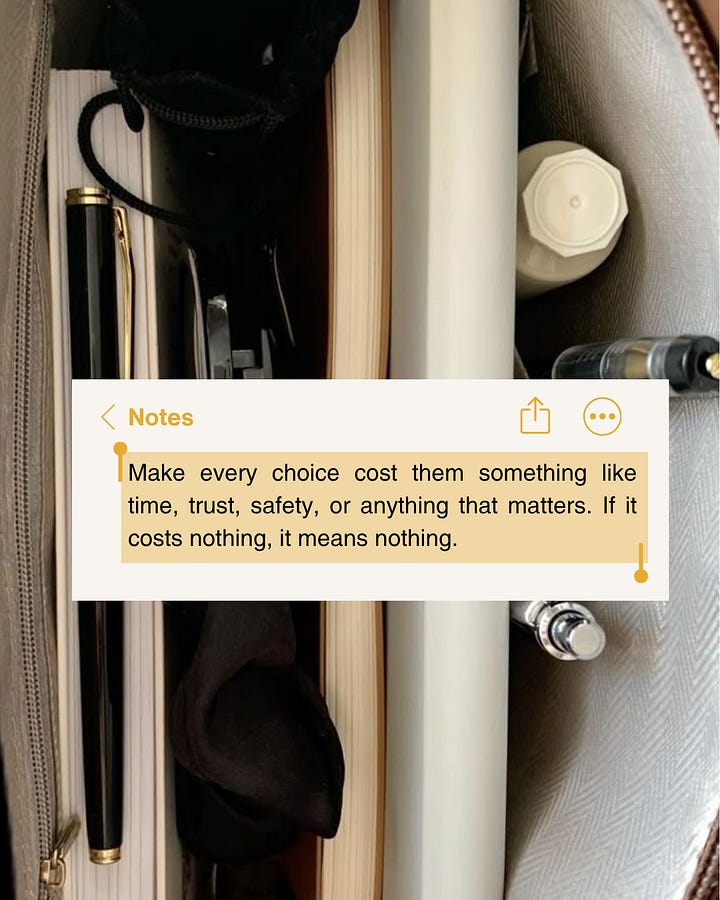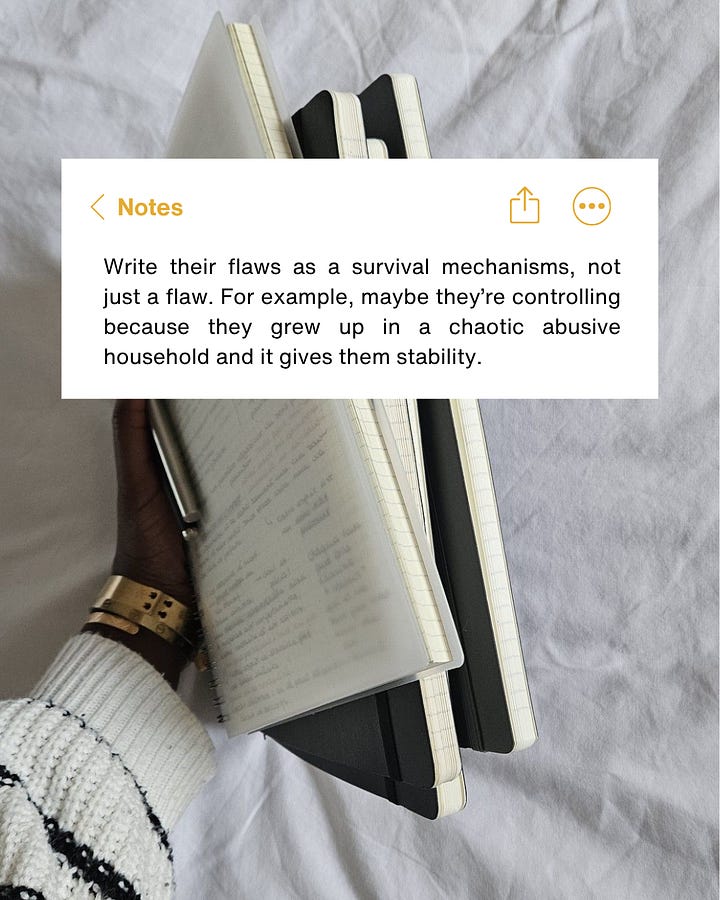Save This For When Your Characters Feel Flat
First Draft Mistakes I'm Learning Through Trial and Error
Throughout the process of writing my first draft, I’m learning that the most important aspect of a story is your character’s ability to change. I was so focused on the external events happening to my protagonist that I didn’t dedicate enough effort to my character’s internal arc. This led to the big climax of my story falling flat. I keep trying to remind myself that the events happening in the story are just pressure points forcing my characters to become someone new or realize they can’t.


To give more context, my story is about a young couple who are separated by death in a gunfight. The woman goes to hell, where she strikes a deal with a Goddess to return to life in exchange for the souls of a thousand evil men, each possessed by Ratten—demonic soldiers of the Goddess of Destruction and Chaos. Desperate to reunite with her lover, she agrees to join the Goddess’s elite force of assassins to exorcize the souls of the possessed, help liberate humanity, and reunite with her one true love. As she embarks on this brutal mission, she begins to doubt the Goddess’s true intentions, and her quest for love may ultimately destroy her soul.
Sounds really awesome, right?
I had every chapter planned so meticulously until the third act, where the cracks began to show. Although my plot and premise were promising, why did I feel like the action fell flat? I had written myself into a hole and was stuck for months. I had to go back to basics to figure out what was not working. I basically scrapped the entire third act and plotted the final scene. It’s a perfect mirror image of the first chapter, so I know it’s strong. Now I had 10 chapters to fill to get to that point, but how?
I thought back to my recent five-star reads and how they ripped me to pieces, emotionally. A Forbidden Alchemy and Red City immediately come to mind. Those characters had deep-seated flaws that drove me crazy as a reader, but felt realistic and the most human. What do I mean by that? In A Forbidden Alchemy, Nina Harrow had a secret she was holding onto, so at times, I couldn’t understand why she would withhold information from her love interest, Patrick Colson. It drove me up a wall! She held everything so close to her chest, yes, because she had been alone, hurt, and guarded all of her life, but it was all to keep herself safe. She had become sneaky and secretive out of necessity, and when it’s ingrained in you like that, it’s hard to let go or change, even to your detriment. That’s an amazing human characteristic to assign to your protagonist. Through Nina, I learned that flaws should not just be a flaw to make your character seem “interesting.” The flaws could also serve as natural contradictions to their actual wants and needs. Character flaws should also cost you something. In Nina’s case, it cost her love, trust, and loyalty.
Wow, what a takeaway. So yeah, okay, my third act fell flat, but I’m viewing it as a good thing. Looking back, I can see now that my protagonist isn’t changing enough, and I didn’t give her enough of an opportunity to. Everything in the story is happening to her, not enough is happening within her. I’m viewing this as a glass-half-full moment because killing off 12 chapters means nothing in the long run if those chapters don’t serve their intended purpose. Better to catch these types of mistakes now versus later.
Here are some wisdom nuggets I’ve picked up through my rewrites. Save it, tweak it, and maybe it’ll prevent a sleepless night or two.


Make every choice your character makes cost them something, like time, trust, safety, or anything that matters. If it costs nothing, it means nothing.
A character’s greatest desire should always come with a cost. If your protagonist wants love, freedom, power, or redemption—make sure achieving it risks destroying something essential about them. Stakes aren’t just external; they’re emotional and moral too.
Write their flaws as survival mechanisms, not just a flaw. Give your character contradictions.
The best stories explore the tension between what a character wants and what they need. So my FMC is on a quest for love that may ultimately destroy her soul. Taking that into account, tragedy or triumph comes from whether or not she learns the difference in time.
Show who your characters are through how others misread them. No one is ever fully understood.
Each misreading tells us something about the character being judged, and about the person doing the judging. The misunderstanding itself becomes story fuel.
Your characters need to change by the end of their arc. It’s not about what happens to them, but what happens within them
The goal is to make sure your characters are changed (“because I knew you, I have been changed for good…” Okay, I’m sorry. I had to put a Wicked lyric in there). Start with your character’s needs, not the plot. The most powerful stories grow from what your character wants and fears, not from hitting structural beats. When you understand their emotional drive, every event naturally challenges who they are.
What are your best tips for improving character arcs? 👇🏽 Feel free to share with the class. I need all the help I can get during rewrites.



